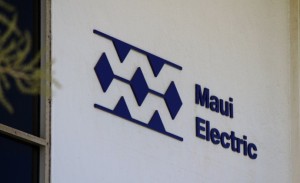Hawaiian Electric Companies 100% Renewable Energy Plan Accepted
The Hawai‘i Public Utilities Commission accepted the Hawaiian Electric Companies’ plan that will lead to 100% of Hawai‘i’s power generation needs coming from renewable resources by 2045.
The Power Supply Improvement Plan Update was accepted by the PUC on July 14. The plan describes the work by Hawaiian Electric, Maui Electric and Hawai‘i Electric Light that will form the foundation to meet or exceed the state’s renewable energy milestones.
In its decision, the commission commended the companies’ study of options to meet Hawai‘i’s future needs for electricity, the openness of the planning process and the “high-quality stakeholder input” that resulted in “a set of plans that provides useful context for making informed decisions regarding the near-term path forward.”
“After review, commission has reasonable assurance that many of the actions identified are credible, supported by sound judgment and analysis, informed by stakeholder input and consistent with state energy policy and prior commission orders,” the commission stated.
The plan describes several key goals, including acquisition of nearly 400 megawatts of new renewable energy resources by 2021. The commission urged the companies to move quickly on a “transparent, timely and successful procurement process” to work with project developers and capture federal investment tax credits before they expire.
“We appreciate the commission’s acceptance of our plan and its guidance for moving forward,” said Alan Oshima, Hawaiian Electric president and CEO. “As the commission noted, thoughtful input from the participants was a key to developing a successful plan and we will continue to work with everyone in our community as we implement it.”
Among the participants in planning were the state Consumer Advocate; County of Hawai‘i; County of Maui; Ulupono Initiative; Blue Planet Foundation; Hawai‘i Gas; Paniolo Power on Hawai‘i Island and the state Department of Business, Economic Development and Tourism. Additional independent technical analysis was provided by the US Department of Energy, National Renewable Energy Laboratory, Hawai‘i Natural Energy Institute and Electric Power Research Institute.
The plan also emphasized work that is in progress or planned over the next five years on each of the five islands served by Hawaiian Electric, Maui Electric and Hawai‘i Electric Light.
The companies exceeded the state’s 2015 renewable energy target and forecast they will exceed the state’s renewable energy milestones in 2020, 2030 and 2040 by attaining a renewable portfolio standard of:
· 48% by the end of 2020; the mandated goal is 30%
· At least 72% by the end of 2030; the mandated goal is 40%
· At least 1005 by the end of 2040; the mandated goal is 70%. This would be five years ahead of the 2045 deadline to reach the goal of 100% renewable energy.
By 2020, Hawai‘i Island is forecast to reach an RPS of 80%; Maui 63%; Lānaʻi 59% and O‘ahu 40%. On Moloka‘i, Maui Electric is working with the community on options for reaching 100% RPS by 2020.
To maintain reliability of electric service, the plan calls for adding energy storage and other grid technologies to accompany new renewable resources.
The plan includes continued growth of private rooftop solar and describes the work to expand and upgrade grid infrastructure and to use the newest generations of inverters, control systems and energy storage to help reliably integrate an estimated total of 165,000 private systems by 2030, more than twice today’s total of 79,000.











